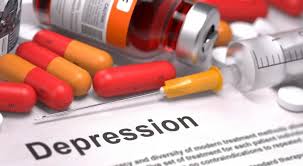A new study published in PLoS scientifically validates what so many drum circle participants have already experienced first hand: group drumming produces significant changes in well-being, including improvements in depression, anxiety and social resilience.
With the World Health Organization identifying depression as the #1 leading cause of disability, globally, and psychiatric medications causing severe side effects, including permanently disabling the body’s self-healing mechanism, drug-free alternatives are needed now more than ever. Could group drumming provide just such a solution?
Titled, “Effects of Group Drumming Interventions on Anxiety, Depression, Social Resilience and Inflammatory Immune Response among Mental Health Service Users,” UK researchers enrolled thirty adults who were already recipients of mental health services but were not receiving antidepressant medications in a 10 week program of drumming versus a control group of 15. The two groups were matched for age, sex, ethnicity and employment status. The control participants were informed that they were participating in a study about music and mental health but were not given access to the group drumming sessions. The treatment group received weekly 90-minute group drumming sessions over a period of 10 weeks. The drum group sizes were between 15-20. Each participant was provided with a traditional African djembe drum and sat in a circle. Twenty percent of the session time involved instruction and talking, whereas 80% was direct participation in music-making. The control subjects were enrolled in community group social activities (e.g. quiz nights, women’s institute meetings and book clubs). Both groups were monitored for biomarkers related to immune status and inflammation, e.g. cortisol and various cytokines, to track the biological as well as psychological changes associated with the intervention.

